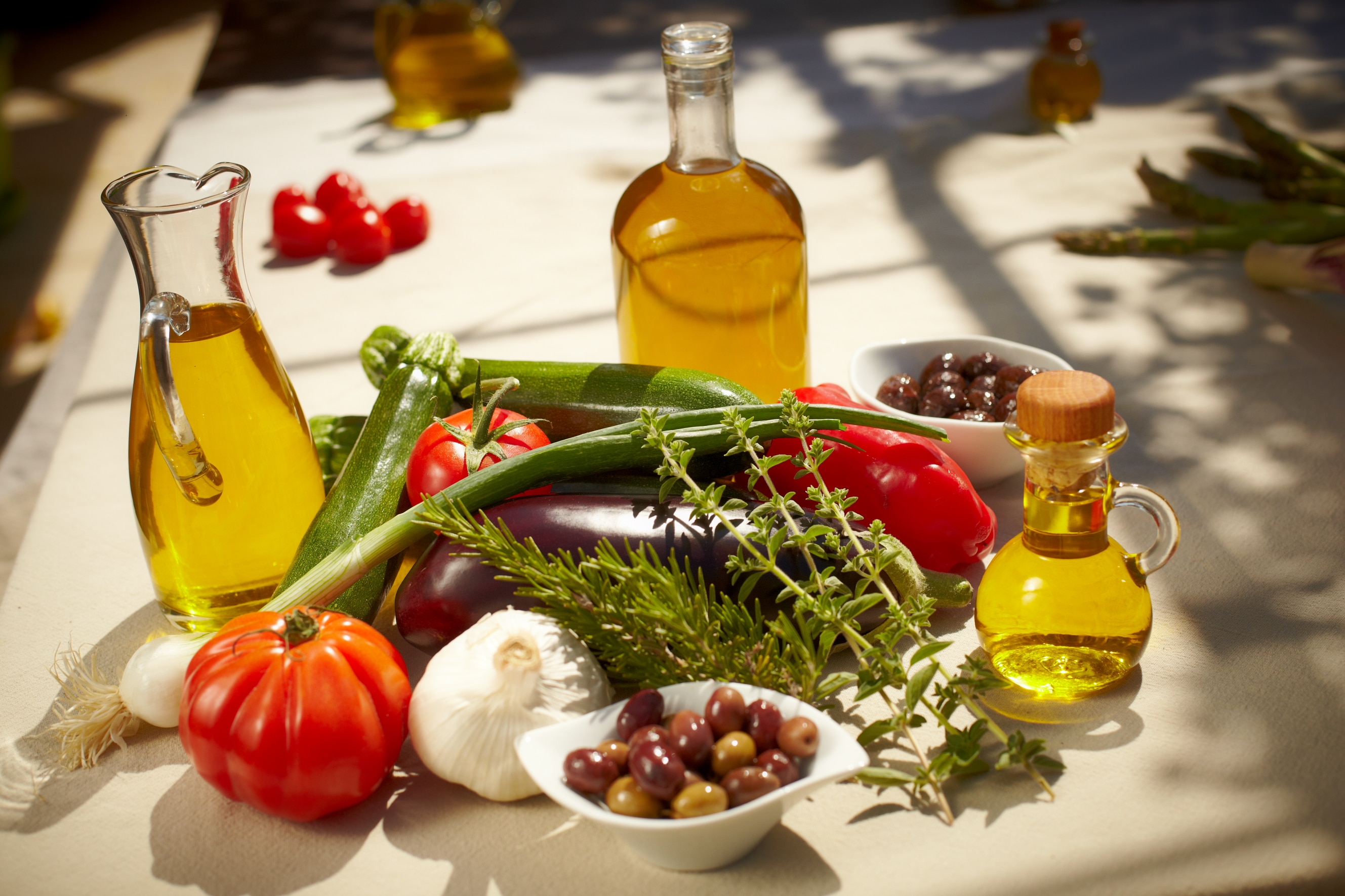Eat Mediterranean…
The Mediterranean food is the art of eating well
The traditional Mediterranean food satisfies largely to the recommendations about nutritional balance: but the health benefits of this way of eating do not only result of the food constituting it. They are also part of a culture, a certain way of eating. Here are some other characteristics which make the Mediterranean food particularly good for health. Frugality: traditionally, frugality was one of the important characteristics of the food behaviours in Mediterranean area.
A second aspect of the Mediterranean food is its great diversity, a well-known fact recognized as one of the keys of the nutritional balance. Finally, the search of food pleasure (the tastes but also the aromas, the textures, the colours,…) is another characteristic of the Mediterranean culture. The refusal of the food monotony carries for the food diversity.
More vegetables, more taste and more pleasure… Some arrangements to balance your daily plate
The originality of the Mediterranean food relies on the proportion of the different food groups. It is a varied food, where each kind is present, but in specific quantities. Fruits and vegetables, cereals and legumes form the base, meat, fish and milk products are only complements. This balance is daily used and for each meal. Raw fruits and vegetables are well present in the Mediterranean style: tomato, salad, cucumber, cabbage, fennel, minced onions are served as starter or with the main dish. Having more vitamin C than cooked vegetables, raw vegetables, thanks to their size and water, promote satiety without bringing superfluous calories. Traditional seasoning with olive oil contributes to increase the input in mono and poly fatty acids and vitamin E. Fruits represent the simplest and healthiest form of dessert and brunch: low in calories, fresh fruits are excellent vectors of vitamin C, carotenoids, polyphenols, potassium,…




 As we find different food habits in the fifteen countries around the Mediterranean Sea, there is one constant: the large use of olive oil. When we talk about “Mediterranean diet”, we refer to traditional food of Greek islands of Crete and Corfu; this is why we call it sometimes “Cretan diet”.
As we find different food habits in the fifteen countries around the Mediterranean Sea, there is one constant: the large use of olive oil. When we talk about “Mediterranean diet”, we refer to traditional food of Greek islands of Crete and Corfu; this is why we call it sometimes “Cretan diet”.


